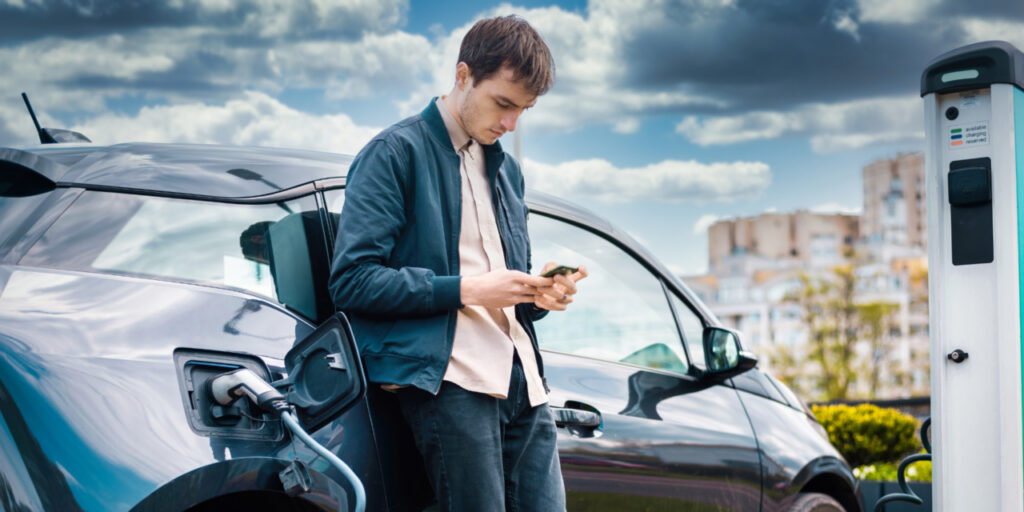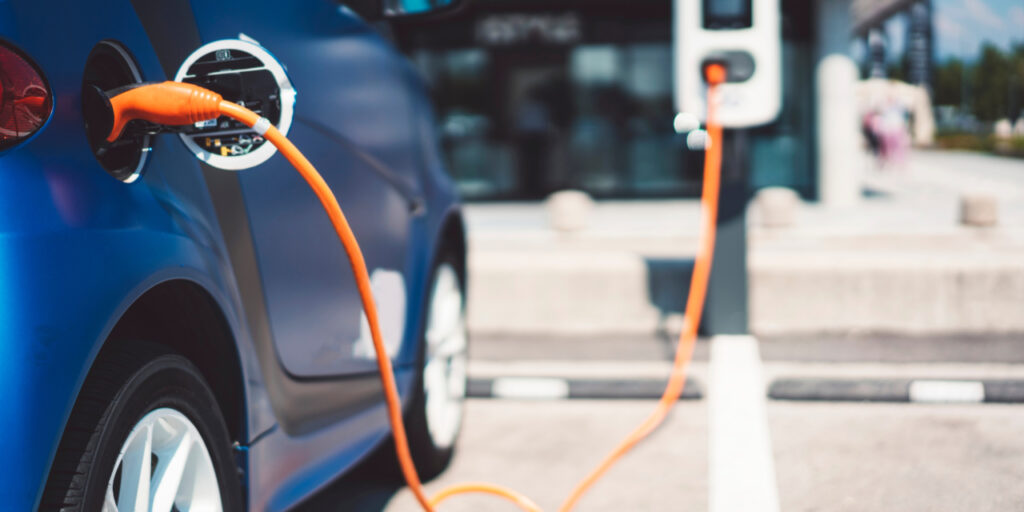Explore the benefits of switching to an electric car and learn how to overcome initial concerns such as range anxiety.
Contents:
- It’s the unknown
- Range anxiety
- Charging infrastructure
- Charging time
- Cost
- Battery degradation
- Resale value
- Maintenance cost
Making the switch to an electric car can be a daunting undertaking for some, but it doesn’t have to be. With our guide, you’ll learn about the benefits of going electric and how to overcome common concerns. Say goodbye to petrol stations and embrace a cleaner, more sustainable future.
The Unknown
Now, I know what you’re thinking. Electric cars, bah! Who needs them? But hear me out. we’ve been taking a closer look at these electric vehicles and there’s a lot to consider before making the switch, but there are so many benefits.
Electric cars are actually incredibly easy and fun to drive, to start with, there are no gears to worry about, so you just press the accelerator and go! Many electric cars also tend to have good acceleration, allowing for quick starts. Electric cars are also very quiet, making for a more pleasant driving experience.
Plus the batteries are often located in the car’s undercarriage, between the axles. That means the centre of gravity is lowered, resulting in top-notch handling. When combined with firmer suspension, this gives you better cornering and a sportier ride.
Range Anxiety
How far can you go on a single charge? That’s a real concern for us petrolheads who like to take a spin out of town now and again. Sure, chargers are popping up all over the place, but what happens when you find yourself in the middle of nowhere with a flat battery? It’s not a pleasant thought. This can be a concern for those who drive long distances regularly.
Electric vehicles have come a long way in recent years, with major advancements in battery technology and range capabilities. Newer models of EVs now offer ranges of over 300 miles on a single charge, with the most advanced models pushing the boundaries even further with some over 500 miles. The latest advancements in battery technology mean that EVs can now travel further on a single charge and take less time to recharge.
The improved range capabilities of EVs now mean that it is possible to travel long distances without having to stop and recharge, making them much more practical for everyday use. In addition, the growth of charging infrastructure means that it is easier than ever to find a charging station when you need it. With the ability to charge an EV at home, at work, and on the road, there is no need to worry about running out of power on a journey.
Plus, when it comes to range, most people’s driving habits are well within the capabilities of the latest EVs. The average daily driving distance in the UK is around 20 miles, which is well within the range of even the most basic EVs and even hybrids. This means that for most drivers, the range is not a concern. Think about it, 20 miles a day is only 140 miles a week so you could only need to charge your electric battery once a week!

The improved range of EVs means that it is possible to use an EV for all your driving needs. If you were travelling 300 miles at say an average of 50 mph this would take you 6 hours. At this stage, you’d probably be ready for a break, in which you can charge up your vehicle. So, whether you are commuting to work, running errands, or taking a long road trip, EVs are now a great option to consider.
Charging Infrastructure
Another concern may be the availability of charging stations, particularly when travelling to areas where there are fewer charging options. While the charging infrastructure for EVs is improving, there may still be areas where charging options are limited, particularly when travelling to rural areas or availability on long road trips.
In the UK, according to Zap-Maps, there are now a whopping 7,579 rapid and ultra-rapid chargers spread out over 4,364 locations! And the best part is, this number is only going up. In January 2023 alone, they added 170 new chargers to the mix. Can you believe it? In 2022, there was a 77% rise in the number of ultra-rapid chargers!
So whilst public changing coverage is not yet in every location, things are improving rapidly and the thing is, you might not have to use the public network very often anyway.
Charging Time
It takes bloody ages to charge one of these things compared to just filling up with petrol. And what about the cost? They’re not cheap, that’s for sure. When it comes to charging an electric vehicle, it’s no secret that it can take longer than filling it up with petrol. Now, I know some of you might think that’s a deal breaker, but let’s take a closer look.
First off, there’s the fact that most of us don’t actually drive around with a completely empty tank. We fill up when the gauge gets low before it becomes an emergency. With an electric car, it’s the same deal. You charge it up when you know you’re going to need it. So, in that sense, the charging time is not as big of an issue as you might think.

Plus, let’s not forget that you can charge your electric car overnight while you sleep, so it’s ready to go in the morning. And if you’re at home during the day, you can charge it up while you’re doing other things. It’s not like you have to stand there and watch the petrol pump like you’re waiting for a kettle to boil.
Cost
The cost of an EV can be higher than that of a traditional petrol vehicle, and buyers may be concerned about the long-term savings they will see from driving electric.EVs tend to be more expensive than traditional ICE vehicles, although the cost of owning an EV is lower in the long run.
Then you have to shell out for a home charger, well this can cost around £1000 for full installation but some companies will offer really good discounted rates when you purchase one of their vehicles so you can even save money here as well. Plus, adding a home charger increases the value of your home so in the long run it might not be as expensive as you think.
Battery Degradation
EV batteries can degrade over time, which can affect the vehicle’s range and performance, which is a concern for some buyers. Over time, an EV’s battery can lose some of its capacity, which can affect the vehicle’s range and performance. This can be caused by factors such as age, temperature, and usage patterns.
But, most modern EV batteries are designed to last for 8 to 10 years or more, and even after this time they will typically still have enough capacity to provide a very useful range. Plus, most EV manufacturers offer warranties for their batteries that cover a certain percentage of capacity loss over a specified period of time. This means that if your battery does degrade over time, you will still be protected and can get a replacement.
By keeping your EV well-maintained and limiting high-speed driving and rapid acceleration you can help to extend the life of your battery and ensure that it remains in good condition for years.
So, while battery degradation is a valid concern, the reality is that most modern EVs are built with long-lasting and durable batteries that are designed to provide reliable performance over the life of the vehicle. With proper care and maintenance, you can be confident that your EV battery will continue to provide you with the range and performance you need, even as it ages.
Resale Values
The resale value is another concern. Electric cars are still a relatively new phenomenon, so the market for used electric vehicles is still developing. And when it comes to maintenance, there’s less to go wrong with an electric car, but it still needs to be taken into account. Some buyers may be concerned about the resale value of an EV, as the market for used electric vehicles is still developing.
So as an example, The Smart EQ ForFour, Tesla Model X, Hyundai Ioniq, Porsche Taycan, BMW i3, Tesla Model 3, Polestar 2, and Volkswagen e-Golf are all-electric vehicles that have good resale value. These vehicles typically retain 48-57% of their original value after three years. The Tesla Model X, Porsche Taycan, and Tesla Model 3 have particularly strong resale value, retaining around 43-40% of their value after three years.

This is due to the high demand for electric vehicles, which is only expected to grow as more brands, such as Jaguar, Mercedes-Benz, Fiat, and Volvo, plan to phase out ICE cars by 2030.
According to CarWow, it seems like EVs are the way to go if you’re worried about your car retaining its value. The electric car keeps about 48% of its original worth after three years (36,000 miles on the road) which is a fair bit more than the combustion-engined counterparts that only retain just under 40% of their value.
So there you have it, EVs are the clear winners when it comes to retaining value!
Maintenance cost
EVs generally have fewer moving parts compared to traditional petrol vehicles, so the maintenance costs are lower. If you keep an electric vehicle in tip-top shape, as the manufacturer tells you to, you’ll save a bundle compared to driving a petrol guzzler. According to consumer reports, you’ll pay half as much to keep an EV on the road compared to a petrol-powered car.
On average, you’ll save around £330 per year and a cool £4,600 over the life of the vehicle. That’s a right good saving!
